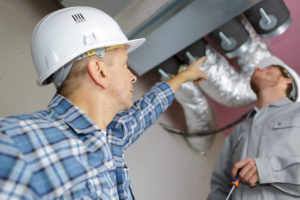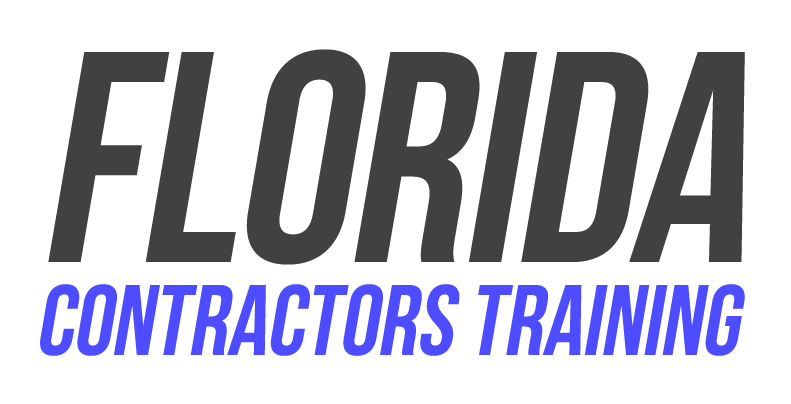HVAC EXCELLENCE CERTIFICATION

WHAT IS A HVAC TECHNICIAN?
HVAC TECHNICIANS are responsible for the installation, maintenance and repair of heating, ventilation and air conditioning (HVAC) systems. As an HVAC technician, your job duties may include inspecting existing systems and making recommendations intended to improve the efficiency and/or safety of that system’s performance. HVAC-R techs may also work on refrigeration systems. You may specialize in areas such as residential HVAC systems, radiant heating systems or commercial refrigeration, among others.
LEARN TRADE SECRETS:
The FCT HVAC TECHNICIAN program is designed to provide students with instructions and hands-on training in the installation maintenance, repair, troubleshooting and basic design of refrigeration heating and air conditioning systems along with a focus on service operations.
FCT HVAC TRAINING
You cannot work as an HVAC technician without training and licensing. Here at FCT we can stream line you into a Florida certified A/C contractor (depending on your years of experience) through Contractors Prep School.com who is a sister company of ours.
Our goal is to get you to become a professional License contractor. Very few schools have this incredible educational program. Enrolling in our program will enable you to become a specialist in your field and also a possibility of becoming a Florida Licensed contractor.
The road in becoming a successful A/C Tech is to always be fully employed! FloridaContactorsTraining.com is where your biggest opportunities of success can be obtained.
THE FCT BENEFITS:
- Fast Track Program:Prepare for a career in as few as 16 weeks
- Experience: Qualified Instructor – 15 years of Instructing and Licensed AC Contractor
- Convenient Schedule: Evening classes, Ongoing Continuing Education
- Career-Planning:
- Connect them with our Industry Network
- Job placement assistance for those who qualify
- Help preparing for State Licensing
WHAT IS THE CAREER OUTLOOK?
According to the U.S. Bureau of Labor Statistics (BLS), employment for HVAC technicians was expected to grow about 21%, which is much faster than average, during the period of 2017-2022(www.bls.gov). The BLS states anticipated growth is most likely due to recent increases in new home construction and environmental concerns, which have prompted some consumers to purchase more energy efficient heating and air conditioning systems for homes and businesses. You may have additional job opportunities if you complete a formal HVAC training program or apprenticeship.
WHAT CAN AN HVAC TECHNICIAN EXPECT TO EARN?
As of 2015, HVAC-R technicians earned an average of $45,110 per year, according to the BLS. The three states where HVAC technicians earned top dollar included the District of Columbia, Alaska and Hawaii.
Be prepared to pursue entry-level employment in the following roles:
- Air Conditioning (A/C) Tech – $35,000 – $53,000.
- A/C Contractor (own your AC Business) – $100,000 – $250,000
- Become a County Inspector – $51,000- $85,0000 –(plus benefits)

QUICK FACTS:
- In 2016, HVAC technicians earned a median annual salary of $45,910.00.
- This occupation employed about 292,000 people in 2014.
- Most HVAC technicians work for construction contractors, but approximately 10% are self-employed.
- Jobs are typically full-time, and overtime may be required during busy times of the year.
- The job outlook looks very promising. According to the U.S. Bureau of Labor Statistics (BLS) are predicting that employment will grow much faster than the average for all occupations through at least 2024 and, for this reason, has designated it a “Bright Outlook” occupation.
HVAC TECHNICIAN’S AVERAGE WORK DAY:
These are some typical job duties provided from Contractors Prep School Licensed A/C contractors.
- Oversee installations.
- Troubleshoot and repair HVAC equipment.
- Apply local HVAC FLORIDA codes in a practical manner on each job.
- Provide CUSTOMER SERVICE
- Provide FIELD technical support
- Layout, design, and install low voltage wiring.
- Be on call after work hours (sometime a requirement).
- Be a Liaison between the customer and the company.
EMPLOYMENT REQUIREMENTS:
Most employers prefer to hire workers who have received post-secondary instruction at a trade or private technical school.
